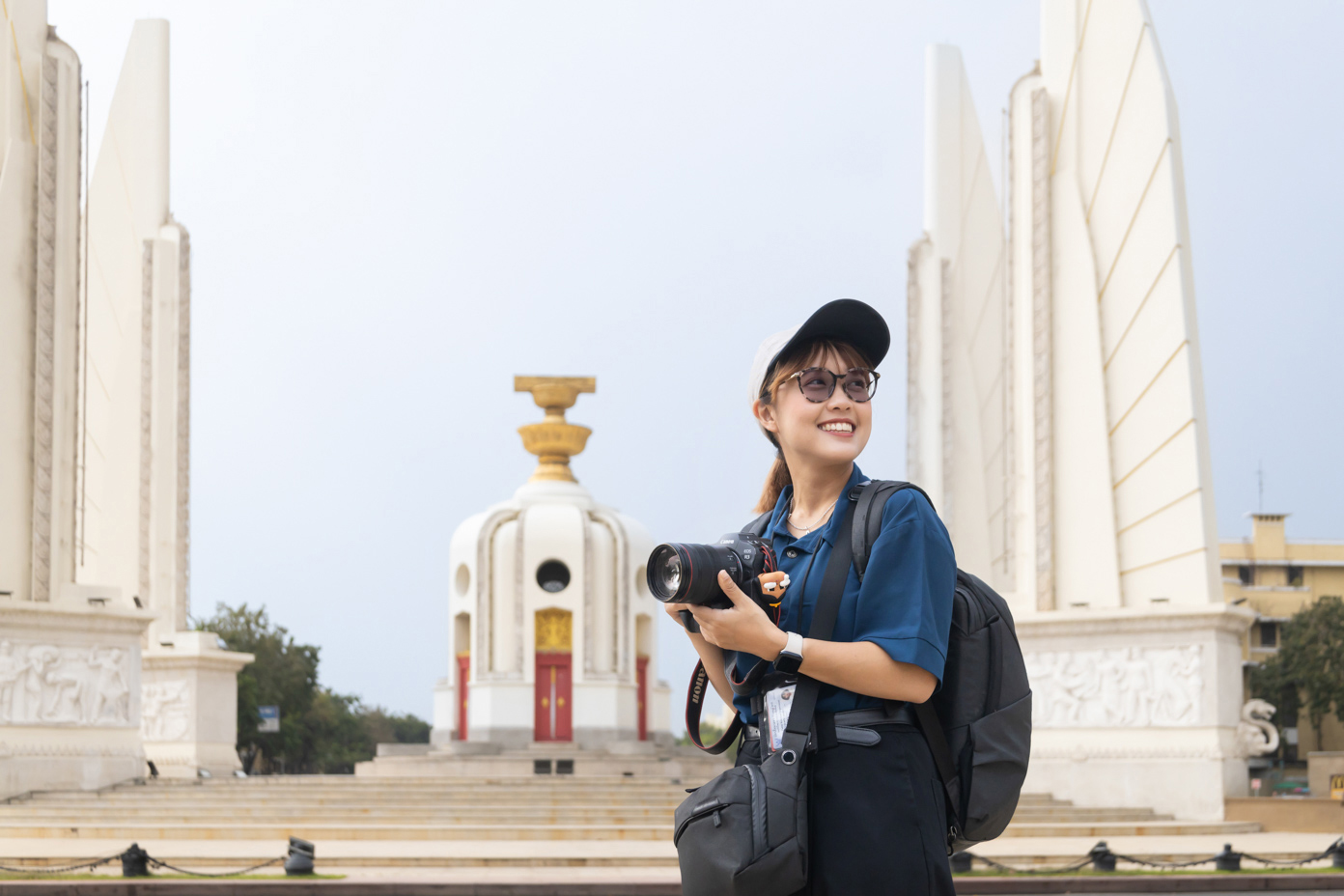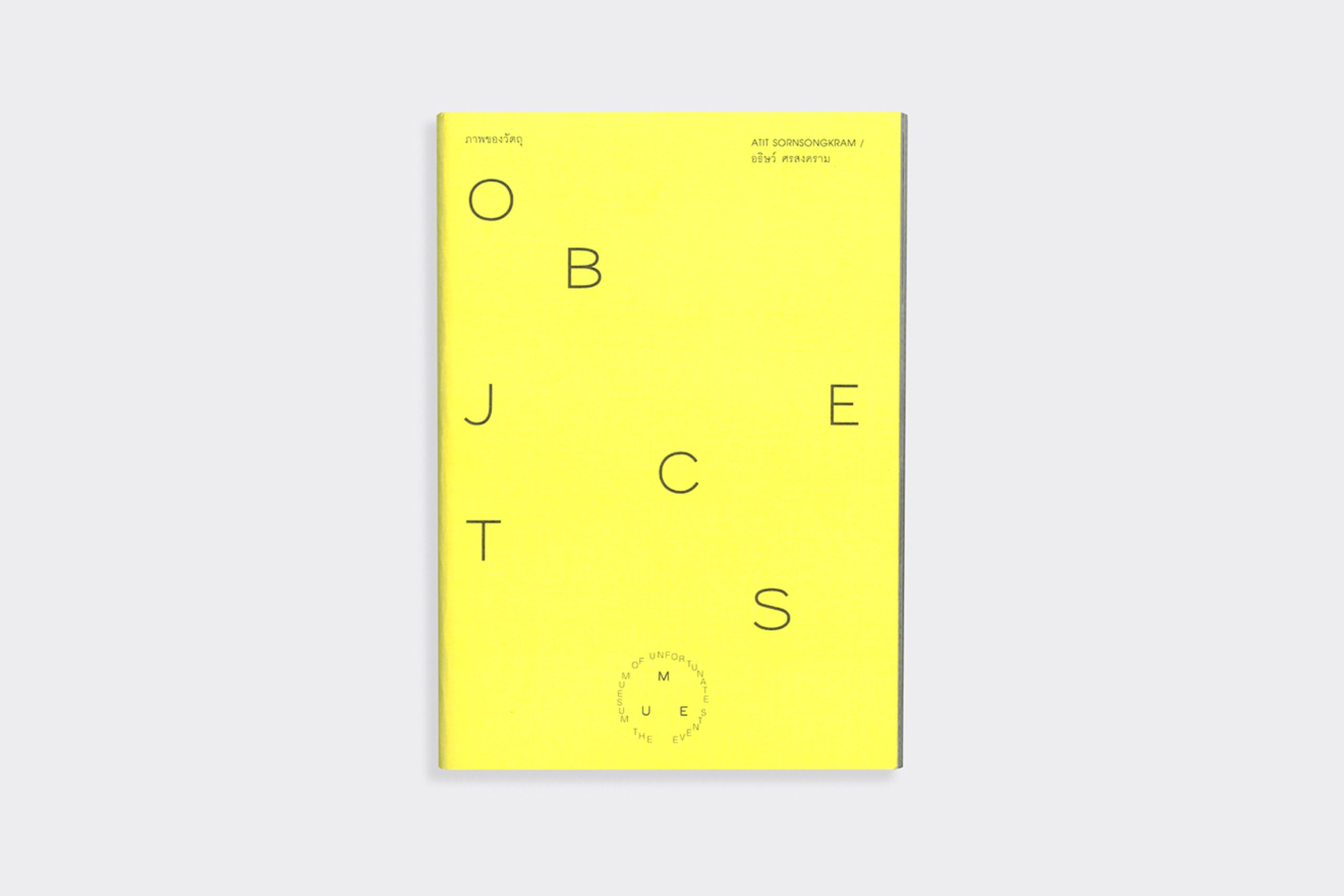Tag: Thai photographer
OBJECTS
เมื่อภาพวัตถุใดๆ จากศิลปินภาพถ่าย อธิษว์ ศรสงคราม ถูกตัดขาดออกจากบริบททั้งหลาย จึงเกิดเป็นคำถามที่ว่า ‘วัตถุ’ เหล่านี้กำลังแสดงความจริงแท้ของตัวมัน หรือกำลังแสดงสิ่งที่สร้างขึ้นโดยช่างภาพกันแน่
TANATCHAI BANDASAK
INSTEAD OF INTERVIEWING AT THE STUDIO, TANATCHAI BANDASAK TOOK US OUT, DRIVING THROUGH THE HEAVY TRAFFIC OF PHRA PRADAENG TO SIT AND TALK AT PISUA SAMUDR FORTRESS IN THE PAVILION ON THE CHAO PHRAYA RIVER. HE TOLD US, THIS WAS THE PLACE WHERE HE DEVELOPED HIS NEW PROJECT
(For English, please scroll down)
ในขณะที่ art4d VISIT เทปก่อนหน้า เรานั่งสัมภาษณ์ดีไซเนอร์ในห้องทำงาน ธณัฐชัย บรรดาศักดิ์ พาเราฝ่าวิกฤตรถติดย่านพระประแดงออกไปนั่งคุยกันถึงป้อมผีเสื้อสมุทรตรงศาลาริมแม่น้ำเจ้าพระยา ธณัฐชัยบอกว่าเขากำลังทำงานศิลปะตรงนี้ เงื่อนไขสำคัญของการตั้ง “ป้อม” คือมันจำต้องอยู่ตรง “ขอบ” เพราะหน้าที่ของมันคือการป้องกันพื้นที่ทางกายภาพ
“ตอนนี้เรากำลังสนใจพวกวัสดุซับเสียง เราสนใจฟังก์ชั่นของมันในการป้องกันเสียงรบกวนและลดเสียงสะท้อน ซึ่งก็ relate กับที่เราพามาตรงนี้ เพราะทั้งสอง (ฉนวน / ป้อม) มี sense ของการเป็นพื้นที่ส่วนปลาย” ธณัฐชัย เล่าต่อว่า sense ของพื้นที่ส่วนปลายที่ว่าคือความเปราะบางและความไม่เสถียร ดิน เป็นอีกสิ่งหนึ่งที่เกี่ยวข้อง ในกรุงเทพฯ เรากำลังยืนอยู่บนพื้นที่ดินดอนที่เกิดจากการทับถมกันของตะกอนแม่น้ำ “รวมถึงดินตรงนี้ (ป้อมผีเสื้อสมุทร) ที่อยู่ตรงปลายแผ่นดิน ทำหน้าที่กั้นไม่ให้ทะเลไหลกินพื้นที่เข้ามา และมีสถานะที่ไหลไปไหลไปมาระหว่างดินน้ำเค็มและดินน้ำจืด
ถ้ามองอีกมุมหนึ่ง สิ่งที่ธนัชชัยพูดถึงคือ transition area ใกล้เคียงกับ The Centre Cannot Hold, 2018 จัดแสดงที่ WTF Gallery เมื่อปีที่แล้ว ศิลปินเล่นกับพื้นที่ชานพักชั้นสอง ด้วยการโปรแกรมการเปิด – ปิด ของหลอดไฟให้มีรูปแบบการกระพริบแบบที่ให้อารมณ์เหมือนกับว่าไฟกำลังจะติดแต่ก็ไม่ติดเสียทีเพื่อพูดถึงช่วงเวลาที่บางสิ่งกำลังจะเกิดขึ้น (แต่ก็ยังไม่เกิด) มาถึงตรงนี้หลายคนคงเริ่มสงสัยวิธีการทำงานของเขาว่า “ภาพถ่าย” อยู่ตรงไหน ธนัชชัย บอกกับ art4d ว่าวิธีการทำงานของเขาคือการออกไปเดินข้างนอก “งานของเราส่วนใหญ่เกิดขึ้นจากการออกไปปะทะกับอะไรบางอย่าง (…) เราใช้ภาพถ่ายในการ sketch และจดบันทึกสิ่งที่เราสนใจ”
Instead of interviewing at the studio, Tanatchai Bandasak took us out, driving through the heavy traffic of Phra Pradaeng to sit and talk at Pisua Samudr Fortress in the pavilion on the Chao Phraya river. He told us, this was the place where he developed his new project. Following its function of defending a physical space, the fortress can exist only on the periphery.
“Now I’m interested in insulation materials and especially in their function of protecting space from outside noise as well as decreasing the resonance inside the space itself. That is the reason why I brought you here.” The two (insulation/fortress) pose the same sense of being on a periphery that refers to some abstract feeling of fragility and an unstable status. It also relates to Bangkok and the area we’re living in which is the Chao Phraya river delta. “As well as the soil here (Pisua Samudr Fortress) at the edge of the land. It is the barrier between water and ground, unsteadily remaining amid the brine and freshwater.”
Looking from another perspective, what artists try to express is the notion of a transition area, such as what we saw in ‘The Centre Cannot Hold’ (2018), an exhibition held at WTF Gallery last year. Bandasak brings about a sense of ‘transition’ in the transition space of the 2nd floor by programming the on-off switch, mimicking the way lights turn on and off swiftly before illuminating the space completely. Some of you may question, “where and how does photography play a part in this artistic process?” The artist told art4d that his practice is going outside. “The ideas usually come about when I have confronted something (…) and, at that point, I use photography as a tool for taking note.


